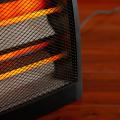Energy Conservation
High energy costs are an important concern that affect consumers and businesses alike. While they affect all Mississippians, they are of particular concern to farmers, homeowners and small businesses. It’s important to take steps to reduce expenses where possible.
Extremely high or low temperatures can have a dramatic affect on energy use and costs. While such temperature extremes do not happen often, they are difficult to predict.
Since we can't control energy prices, or the weather itself, the important thing is to make sure that homes, businesses and farms are as energy efficient as possible. This means taking conservation steps before extreme temperatures - winter or summer - arrive in earnest.
To help homeowners and others with energy conservation, the Mississippi State University Extension Service has developed the following information to help reduce these costs.
Winter
Which Winter Fuel Is Cheapest? The heating value of a fuel is determined by its Btu (unit of heat) in relation to its cost per unit. Under normal conditions, natural gas where it is available usually gives more heat per dollar compared to other sources, such as propane, fuel oil, and electricity. This is not always true, however; changes in the price of one fuel relative to others affect the price-to-value ratio.
What Can Homeowners Do To Reduce Winter Heating Costs?
Several no-cost or low-cost options are available to homeowners:
- Reduce your gas bill by up to 21 percent by turning down the thermostat from 70º F to 65º F. Lowering it even farther, to 60º F, can save another 18 percent. If you are uncomfortable at these lower settings, wear a sweater or layers of clothes and a cap. Use extra bed covering at night.
- In very cold weather, try to use a smaller portion of your home, and heat only that area. Close off unused areas unless there is the risk of pipes freezing. Shut off the air vents and close the doors. A towel placed under the door reduces drafts.
- Insulate windows with a clear plastic covering. An uninsulated window can lose 10 to 20 times the heat as the same area of a well-insulated wall. A storm window conserves even better.
- Use caulking and weatherstripping around doors and windows to reduce heat loss up to 37 percent.
- Insulate your hot water heater. A hot water heater uses 12 to 15 percent of a typical home's energy. Completely wrap electric water heaters with insulation, but wrap gas water heaters on the sides only. On gas heaters, make sure that the pilot light's access door isn't covered or that air isn't blocked from the burner.
- Change the filter on the heating unit often. Dust can restrict air flow and increase operating costs.
- Fix leaks, especially hot water faucet leaks. Hot water leaks make your hot water heater operate unnecessarily.
How Can Farms and Small Businesses Reduce Winter Heating Costs?
Many of the same principles for home energy conservation also apply to other structures:
- Stop unnecessary air leaks by caulking; weatherstripping; and sealing holes, cracks, and other places where cold air can enter. If the structure isn't well insulated, consider adding insulation based on recommendations for the particular structure. Make sure the structure is ventilated properly for more efficient fuel use and for safety reasons.
- In buildings with high ceilings, consider installing a circulating fan to mix layers of hot and cold air for improved heat distribution and to bring warmer air toward the floor. Keep equipment properly maintained, vented, and serviced. Keep records of monthly bills so you will know how well your conservation efforts are paying off.
- If you own equipment that operates on oil or if you otherwise have access to fairly large amounts of inexpensive, used motor oil or wood, then an oil-fired or wood-fired heater might be an option for you to lower heating costs. These units are best designed for farm shops and similar structures. Newer units are generally more efficient than those designed several years ago.
- In the field, use no-till planting to reduce the number of trips over a field, thus saving fuel. Look for ways to get the most efficiency from nitrogen fertilizer, such as planting legumes to supply nitrogen and testing soil to determine plant needs. Apply fertilizer at optimum times for plant use, and apply weed control chemicals when weeds are small.
Safety is an important issue with heating equipment. Don't try to adjust regulators on gas tanks or make potentially dangerous repairs yourself. Contact the gas company or utility for help.
Summer
What Can Homeowners Do To Reduce Summer Energy Costs?
Many energy conservation principles apply in summer as well as winter. For example:
- Caulking and weatherstripping around doors and windows saves in both hot and cold weather.
- Raising the thermostat also significantly lowers the cooling bill. A good starting point is 78º. Every degree the thermostat is set below 78º adds about 7 percent to the cooling bill. At 72º, the cost is about 42 percent higher than at 78º. If higher thermostat settings are uncomfortable, you can make your living area feel several degrees cooler by using a fan to circulate conditioned air.
- Don't overlook the value of landscaping in summer energy savings. About 60 percent of the heat entering a home in the summer is through the roof. Provide shade to the roof, walls and driveways to reduce heat absorption and save energy and money.
- Take advantage of windows in the spring for fresh air and natural ventilation. In the summer, keep the drapes drawn to reduce radiant heat from the sun. Ventilation is especially important to reduce summer energy costs. Make sure attics are properly ventilated.
- Change air conditioner filters regularly. Insulate air conditioner ducts that are exposed in the attic or in other areas.
- If you buy new appliances, look for energy saving features. Check the energy guide on appliances for energy consumption.
- If you're building a new home or adding to an existing structure, match the equipment to the heating and cooling load as nearly as possible. Oversized equipment wastes energy. But keep in mind that while a window cooling unit works well for a small area, a central unit may be more economical for larger areas in the long run.
What Can Farmers Do To Save On Summer Energy Costs?
Many principles for home energy conservation also apply to farm structures:
- Stop unnecessary air leaks by caulking, weatherstripping, and sealing holes or cracks where warm air can enter.
- Proper ventilation is especially important in poultry houses or other structures that house farm animals. Ventilation is important not only for energy savings, but also for improved air quality for health purposes.
- Keep cooling equipment properly maintained and serviced. Keep records of monthly bills so you will know you're conservation efforts are paying off.
- In the field, save energy by using no-till or minimum till planting to reduce the number of trips over a field. Look for ways to get the most efficiency from nitrogen fertilizer, such as planting legumes to supply nitrogen and testing soil to determine plant needs.
- Apply fertilizer at optimum times for plant use, and apply weed control chemicals when weeds are small for best control and to reduce chances of having to reapply chemicals.
- Keep engines and equipment in good operating condition. Repair fuel and oil leaks, and clean or replace air filters. Use ballast to keep wheels from slipping and using more fuel. Keep tires properly inflated.
- Keep irrigation engines serviced and well-tuned. Make sure motors, switches and control panels are clean. Check connections to make sure they are tight, and lubricate moving parts that require it. Irrigate according to a schedule for more efficient fuel and water use.
Safety is always a factor with electric equipment. Don't take chances with faulty connections, make potentially dangerous repairs, or cut corners that put your safety at risk. If in doubt, contact an electrical contractor for help.
For more information on energy conservation, call or visit your county Extension office.
Publications
News
Are you finding it harder to make ends meet? Many people are having to adjust their spending with rising prices on everything from groceries to gasoline. But even as prices rise, most families can find a little room in their budgets by taking a close look at where their money goes each month.
RAYMOND, Miss. -- Space heaters and fireplaces can help keep temperatures comfortable during cold weather. However, all types of heating equipment can be fire hazards if safety precautions are not taken. According to the National Fire Protection Association, home heating fires happen most often in December, January and February, accounting for almost half of all home heating fires.
Losing or having your personal information exposed is something that happens quite often in today’s society.
Success Stories
In Rolling Fork, the Mississippi town in Sharkey County devastated by a twister on March 24, 2023, despair was not an option.






